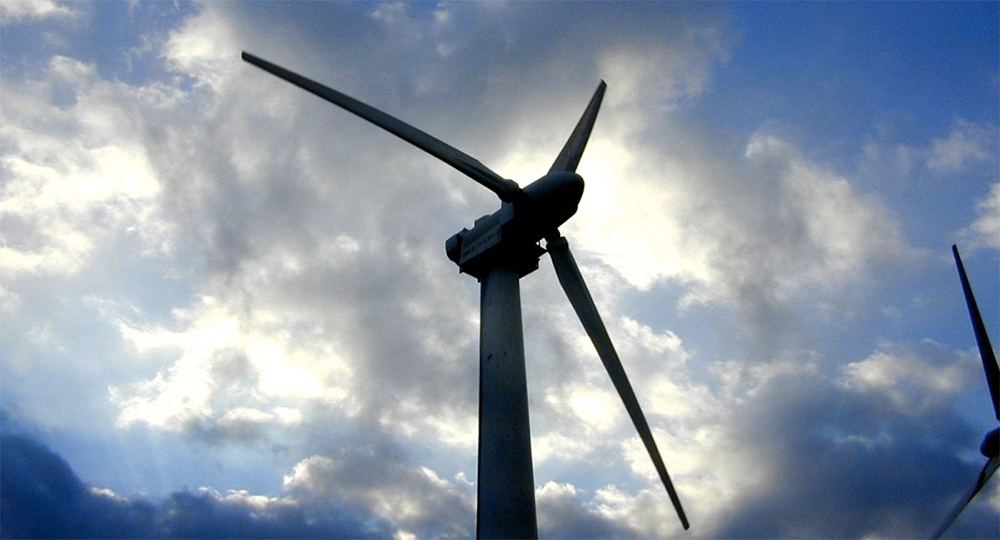
Six farmers have been rewarded for their resourceful renewable energy installations, each winning a £500 cash prize at the inaugural Energy Now Awards 2016.
With the recent tariff cuts the sector has seen, it’s easy to forget those passionate individuals who are pioneers in the industry, forging ahead, and benefitting from inventive installations.
And the winners were clear that support for the renewable energy industry is crucial. On receiving the award for Best Hydro Scheme, Charles Hudson, who farms in Worcestershire, made an impassioned plea to the government to ‘listen up’.
“I feel passionately about renewables, and believe they’re key to a sustainable future. We need to harness the natural resources we have. I’m appalled at the way the current government is threatening the sector. They should be investing in us, because there’s a huge amount of public enthusiasm for generating energy from natural resources,” says Charles.
Charles farms on the banks of the River Avon and, after suffering devastating floods in 1998, and 2007, he decided to use the water rather than be defeated by it. He now powers the local leisure centre, and sells any surplus generated to the grid, and this goes to power local houses.
Howard Jones, arable farmer from Shropshire, took away the award for best biomass scheme. He believes that the awards are vital in highlighting individuals in the renewable sector who’re driving the industry forward.
“It’s important to recognise the people who have success in renewables, and it can be daunting when you first start out – but it’s worked for us, and we have a 199KW HDG biomass boiler which is automatically fuelled by woodchip. The system provides all the heat and hot water for the farmhouse, and our three holiday cottages,” says Howard.
Judging these awards were three industry experts, Tom Beeley, CLA renewables advisor, Dr Jonathan Scurlock, NFU renewables advisor, and Darren Edwards, Fisher German partner. Handing out the prizes was Andrew Ward MBE, who heads up Forage Aid, the Energy Now Expo partner charity. The charity benefitted on the night with tomato growers John and Caroline Jones (below) handing over their winners cheque to Forage Aid.
Award winners
AD and biogas Scheme
Winners: John and Caroline Jones from Guy and Wright Farm, Hertfordshire.
Presenting award: Mike McLaughlin, EnviTec Biogas
Tomato growers John and Caroline have installed an AD plant that brings multiple benefits to the business – and provides biogas for their heat, and power, with electricity export bringing in vital revenue to re-invent the business.
Best biomass scheme
Winner: Howard Jones, Plaish Park Farm, Shropshire
Presenting award: Roger Perry, Twinheat
Shropshire arable and sheep farmer, Howard Jones, has an automatically fuelled biomas boiler, fuelled by wood chip sourced from the sustainable management of trees and woodland throughout the farm.
Best heat pump scheme
Winner: Tim Dixon, Village Farm, Leicestershire
Presenting award: Steve Richmond, Rehau
Tim’s scheme provides full heating and hot water for two farmhouses and he’s looking to install the same for a third farmhouse.
Best hydro scheme
Winner: Chares Hudson, H&R Hudson, arable and market garden crops farmer, Worcestershire
Presenting award: Alistair Marsden, Dulas
Arable and market garden farmer, Charles’s hydro scheme supplies a neighbouring sports complex with power. The power is supplied via a cable under the river and during peak winter flow rates any surplus power is sold back to the grid.
Best wind scheme
Winner: Gavin Fowler, Boode Farm, North Devon
Awarded by: Charles Hansford Partner, Brabners LLP
Powering a dairy unit for 300 dairy cows in north Devon is a twin Gaia 11KW small scale wind turbine site. The power generated is used by the dairy unit and all associated equipment/ancillaries.
Most carbon neutral scheme
Winner: James Raw, Tyllwyd, Cwmystwyth, Cambrian Mountains, Wales
Awarded by: Carl Gurney, Jelf Insurance Brokers
Farms 900 Welsh mountain ewes, and 35 pure-bred Limousin cows, in the middle of the Cumbrian Mountains. The grassland, trees, hedges and peat wetlands take up more carbon than that emitted by the stock and production system. They’ve built two separate 100KW hydroelectric schemes producing 850,000kW/h annually, with a carbon saving of over 1,500 tonnes of CO2.
